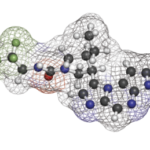(Reuters)—AbbVie Inc. and ELi Lilly & Co. are facing fresh delays in the approval of their respective rheumatoid arthritis (RA) drugs for treating the chronic skin disease eczema as the U.S. health regulator assesses the new class of treatment over safety concerns.
The treatment, called Janus kinase inhibitors (jakinibs), blocks inflammation-causing enzymes known as Janus kinases and targets a range of autoimmune diseases.
It, however, has come under the U.S. Food & Drug Administration’s (FDA’s) scrutiny after preliminary results from a safety trial of Pfizer’s jakinib drug earlier this year showed an increased risk of serious heart problems and cancer in patients.
Due to the agency’s ongoing assessment, both AbbVie and Lilly say the FDA would be unable to take a decision on the expanded use of their drugs before the previously set deadline.
The decision on Abbvie’s Rinvoq (upadacitinib) and Lilly’s baricitinib for treating eczema was expected by early third quarter after the agency in April extended its review of the drugs by three months to examine additional data.
The disease affects 16.5 million adults in the U.S., according to patient advocacy group Asthma and Allergy Foundation of America.
AbbVie, which has sought to expand the use of upadacitinib to new indications, including psoriatic arthritis and ankylosing spondylitis, is betting on the drug as its blockbuster treatment, Humira (adalimumab), loses patent protection in the U.S. in 2023.
Upadacitinib, which brought in sales of $731 million for AbbVie in 2020, was approved to treat RA in 2019.



